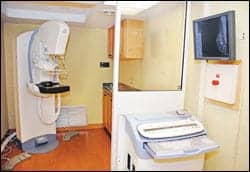By Marianne Matthews
A surgeon at Mount Sinai Medical Center in New York City recently lost his job after he removed the wrong kidney from a patient. What surprised me most about the story was not the physician’s mistake but the patient’s reaction. Apparently, the 76-year-old man took it pretty well. According to the New York Post, the patient told hospital officials that the surgeon had helped him overcome bladder cancer, and that despite the error, he had “enormous faith in the doctor.”
Although the patient certainly would have a right to be upset, I must say I found his attitude refreshing. No mention of the “S” word and he actually expressed confidence in the surgeon. Clearly, previous to the unfortunate incident, this surgeon did something right to earn the long-term trust of his patient.
Medical errors are a fact of life. Physicians are human, and even the most vigilant among them is bound to make a mistake now and then. The radiology community has long focused on ways to reduce errors and eliminate wrong events. After all, there is pretty good evidence that reducing errors not only improves patient care, but also can reduce costs and boost the overall image of a facility or hospital. I think everyone would agree that reducing radiology errors is a top priority.
The more controversial issue is what to do once an error has occurred. Should radiologists disclose errors to patients?
In an interview for an article published in the RSNA 2012 Daily Bulletin (November 28, 2012), Lenny Berlin, MD, professor of radiology at Rush University Medical College, said, “Surveys show that 80% to 90% of doctors believe that errors should be disclosed. But only 30% to 40% of them actually admit mistakes to patients and their families.”
Experts say that fear of malpractice is probably the number one reason why radiologists are reluctant to disclose errors. Let’s face it, in a society as litigious as ours, how many patients are going to respond as calmly as that Mount Sinai patient? Radiologists may think that if they keep quiet about errors, they’re playing it safe and avoiding a messy lawsuit.
But interestingly, according to an RSNA news report, failure to communicate results of a radiologic examination is the second most common cause of malpractice litigation (“Error Disclosure Is Radiology’s Next Step in Patient Care,” June 1, 2012).
Our health care system is becoming more consumer-driven and radiologists are focused on greater patient interaction. That being the case, could honest discussions with patients about errors actually work in favor of the radiologist?
Experts say that the disclosure process is an opportunity to enhance the bond between a patient and physician. Maybe. But that’s giving the average patient a lot of credit for responding in a reasonable manner. What’s more, I would think that whether the disclosure process puts a positive or negative spin on the relationship would be somewhat dependent on how big of an error we’re talking about. Was it a missed fracture in the left toe or a missed cancer? The gravity of the error is certainly going to have some impact on how a patient reacts.
Error disclosure isn’t easy and poses a dilemma for any physician. While an open, honest discussion may or may not help you build a stronger bond with your patient, there is only one real reason to own up to your mistakes. It’s the right thing to do.



